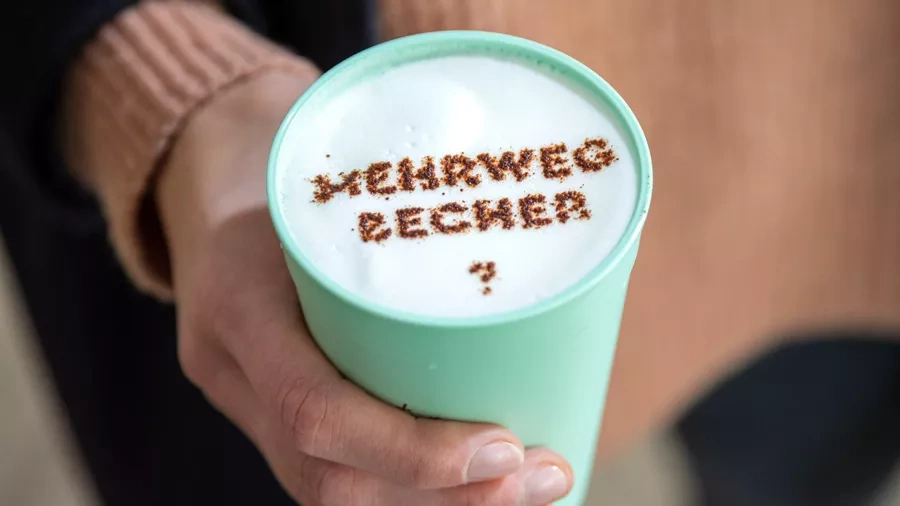Whether as a pick-me-up in the morning or a highly anticipated moment of indulgence, coffee to go has become an indispensable part of everyday life for many consumers. People are also consuming an ever increasing amount of takeaway food in disposable packaging – whether it’s due to the growing popularity of delivery services or people buying food from the snack bar on the corner during their lunch break. But this all generates a large amount of waste, which is expensive to dispose of especially in public places. The convenience of food “to go” can also be enjoyed, however, in an environmentally friendly and sustainable way – by using reusable packaging instead of cups and containers that are simply thrown away after they have been used once.
Yet customers are often not even given the option of selecting reusable packaging. In order to make these sustainable alternatives easier to obtain, all providers of takeaway food have been obligated to offer the option of reusable packaging since the start of the year. Companies now also have to offer a reusable alternative for every disposable container and every disposable cup they use for their takeaway (or “to go”) food and beverages. These reusable options must not be more expensive than products offered in a disposable package. Companies are permitted, however, to charge a deposit for these reusable products. It is thus really easy to integrate the convenience of takeaway products into everyday life.
The Blue Angel ecolabel has already been certifying “reusable systems to-go for food and beverages” (DE-UZ 210) for a long time. The aim is to reduce the number of disposable containers and promote the use of environmentally friendly reusable container systems. The criteria place requirements on both the containers themselves and also on the supplier. For example, companies must avoid the use of materials that are damaging to the environment and health during the production of the reusable containers and lids. In addition, the containers must have a service life of at least 500 wash cycles and the reusable lids must have a service life of at least 100 wash cycles. The provider is also obligated to take back and recycle these items at the end of their service life.
Life cycle assessments have demonstrated that the circulation number for a cup – i.e. the number of times it is actually reused – is an important criteria for easing the environmental burden. A deposit must also be charged for each cup and lid.
Benefits for the environment of reusable systems to-go for food and beverages (DE-UZ 210)
- reduces waste
- resource-conserving
You will find further information on the “to go” reusable systems and certified products here.
It not only makes sense to develop sustainable alternatives when enjoying a cup of tea or coffee to go or when eating takeaway food. As a general rule, consumers should select reusable packaging wherever possible when making a purchase. This is why the Blue Angel also certifies returnable bottles and glasses. However, the ability to reuse these products is not the only important aspect for certification with this ecolabel. By requiring companies to name the regional filling location, the length of the transport routes is also made transparent for customers.
Benefits for the environment of returnable bottles and glasses (DE-UZ 2)
- information on the regional filling location
- returnable
You will find further information on environmentally friendly returnable bottles and glasses and certified products here.



